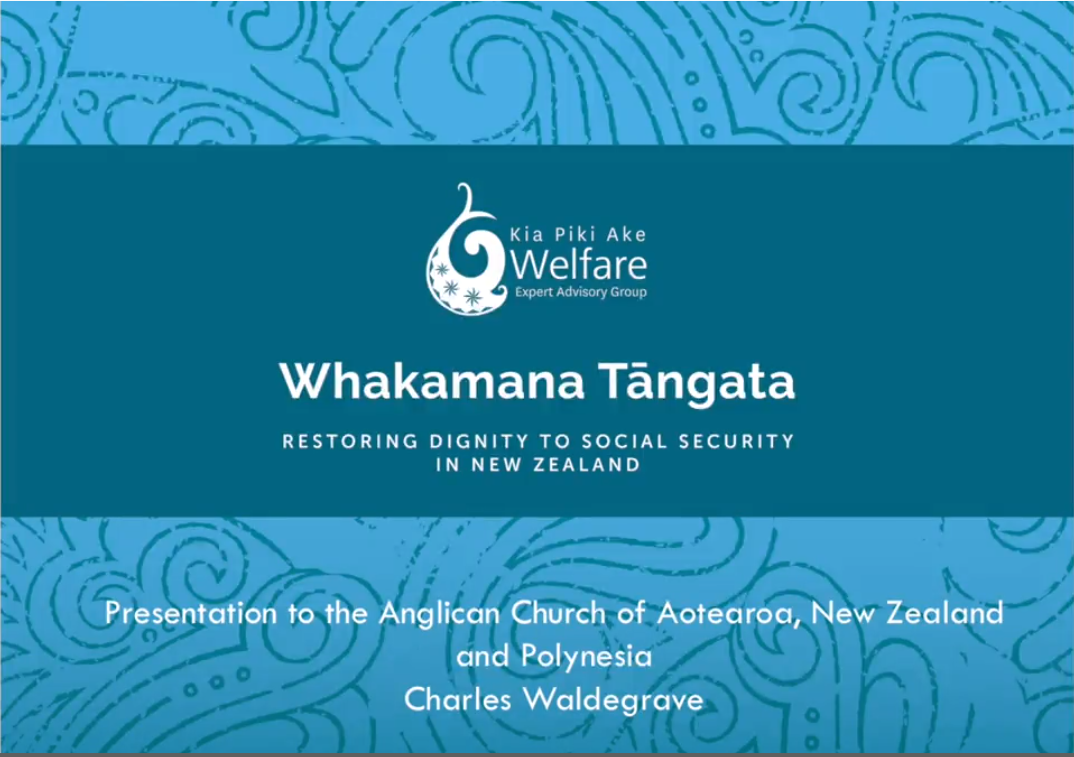“E kore e taea e te whenu kotahi ki te raranga i te whāriki kia mōhio tātou ki ā tātou. Mā te mahi tahi o ngā whenu, mā te mahi tahi o ngā kairaranga, ka oti tēnei whāriki. I te otinga me titiro tātou ki ngā mea pai ka puta mai. Ā tōna wā, me titiro hoki ki ngā raranga i makere nā te mea, he kōrero anō kei reira.”
The tapestry of understanding cannot be woven by one strand alone. Only by the working together of strands and the working together of weavers will such a tapestry be completed. With its completion let us look at the good that comes from it and, in time we should also look at those stitches which have been dropped, because they also have a message. WEAG – Kūkupa Tirikatene 1934–2018
This video ‘Whakamana Tāngata’ offers us an insight into a social security system that has traversed from reasonably sustainable methods and policies to a failing system of mechanisms that prevent our communities from thriving. Where once families on one income could afford a small home and maintain an affordable lifestyle we are faced with today’s reality of a single income that cannot afford to pay the rent much less the amenities needed for a whānau of four to survive.
In this 21 min presentation (originally meant for Diocesan Synods), Charles Waldegrave unpacks the findings of WEAG (Welfare Expert Advisory Group), set up by the government, highlighting the crises around income, housing, asset stripping, leading to the dignity of not only the system but people also.
“Evidence is overwhelming that incomes are inadequate for many people, both those receiving a benefit and those in low-paid work. Current levels of support fail to cover even basic costs for many people, let alone allowing them to meaningfully participate in their communities. In New Zealand, poverty and benefit receipt are strongly associated. Māori, Pacific People, people with health conditions and disabilities, and young people are especially adversely affected.” (WEAG Executive Summary, February 2019).
Press play on the image below, to watch the 21min video.
Charles has expressly suggested that our Provincial Anglican church and it’s bishops could move to add their democratic weight, with its non-biased, cultural, and class diversity, to influence the government to make some critical changes. Whakamana Tāngata!
It is heavy, but we make no apologies for that. If you are ready for a deep-dive, then take a look. Over time we hope to add more material and resources around this topic.
Our thanks to Charles Waldegrave, and Archbishop Philip, for making this resource available.



